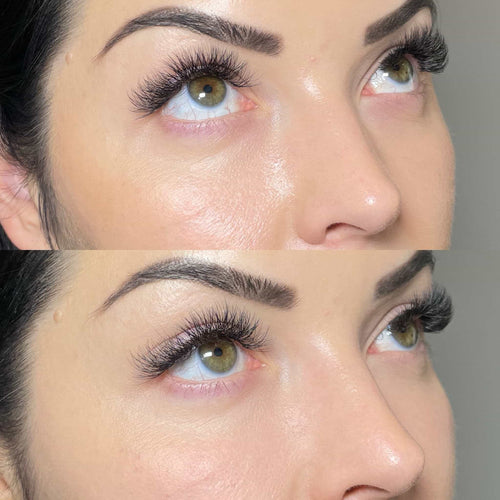Consult with Dr. Laura Geige for Dermal Fillers at It’s Me and You Clinic
## The Immune System’s Role

The immune system plays a crucial role in determining whether your body accepts or rejects foreign substances, including medical implants and fillers.
When you receive any type of filler injection, your body recognizes it as a foreign material, triggering an immune response. This response aims to neutralize and eliminate the perceived threat.
Your immune system employs various mechanisms to combat this perceived intruder. Special cells called macrophages engulf and try to break down the filler particles. Other immune cells release chemicals that trigger inflammation, attempting to isolate and contain the filler.
The success of the immune response depends on several factors, including the type of filler used, individual variations in immune system strength, and the site of injection.
Some fillers are designed to be more biocompatible, meaning they are less likely to trigger a strong immune reaction. These fillers often break down gradually over time, reducing the likelihood of long-term rejection.
Get a Dermal Filler Consultation with Dr. Laura Geige at It’s Me and You Clinic
However, even with biocompatible fillers, it’s possible for delayed reactions to occur months or even years later. This can happen if the filler particles are not completely eliminated by the immune system and persist in the body.
These persistent particles may continue to trigger low-grade immune responses over time, leading to inflammation, redness, swelling, or changes in texture around the injection site.
The exact mechanisms behind delayed filler rejection are complex and not fully understood. It’s likely a combination of factors, including ongoing immune cell activity, the release of inflammatory mediators, and the body’s attempt to remodel and repair the affected tissue.
Filler Recognition
Delayed Reactions
Factors Influencing Rejection
Delayed reactions to fillers are indeed possible, although they’re less common than immediate reactions occurring right after injection.
These delayed reactions can manifest in various ways, including:
-
Lumps or bumps:** These may appear weeks or even months after the initial injection and are often caused by a granuloma, a collection of immune cells surrounding foreign material.
-
Redness or swelling: Persistent redness or swelling around the injection site can sometimes develop later on.
-
Asymmetry: If the filler migrates unevenly over time, it can result in an asymmetrical appearance.
Several factors can influence the likelihood of a delayed reaction to fillers:
-
Type of filler:** Certain types of fillers, such as those made from hyaluronic acid, are more readily absorbed by the body and less likely to cause long-term issues.
-
Individual immune response: Every person’s immune system reacts differently. Some individuals may be more prone to developing a delayed reaction than others.
-
Injection technique:** Improper injection technique can increase the risk of complications, including delayed reactions.
-
Pre-existing skin conditions: Conditions like acne or eczema can make the skin more susceptible to inflammation and complications from fillers.
Book Your Dermal Filler Appointment with Dr. Laura Geige
It’s crucial to choose a qualified and experienced injector who uses reputable products and follows sterile techniques.
Be sure to discuss your medical history, allergies, and any concerns you have about potential side effects before undergoing any filler treatment.
Type of Filler
Individual Response
Underlying Medical Conditions
Signs and Symptoms
Underlying medical conditions can significantly influence how your body responds to dermal fillers, potentially leading to complications even months after treatment.
Here are some underlying medical conditions that may increase the risk of adverse reactions to fillers:
- Autoimmune disorders: Conditions like lupus, rheumatoid arthritis, and scleroderma can cause your immune system to attack healthy tissues, potentially leading to inflammation and rejection of the filler material.
- Skin conditions: Active skin infections or inflammatory skin diseases, such as rosacea or eczema, can increase the risk of complications from fillers.
- Blood clotting disorders: Individuals with blood clotting disorders may experience increased bruising or swelling after filler injections.
- Diabetes: People with diabetes may have impaired wound healing and a higher risk of infections, potentially complicating the body’s response to fillers.
Besides underlying medical conditions, certain signs and symptoms could indicate that your body is rejecting or reacting poorly to filler injections:
- Redness, swelling, or tenderness at the injection site:** These are common side effects of fillers, but persistent or worsening inflammation could signal a problem.
- Pain and discomfort**: Unexplained pain or discomfort around the injection site that increases over time may indicate rejection.
- Skin changes**: Look out for changes in skin texture, such as hardening, nodules, or lumps at the injection site. This could indicate filler migration or an abnormal immune response.
- Lumps and bumps**: Hard lumps or bumps developing under the skin, particularly if accompanied by pain or redness, should be evaluated immediately.
- Infection**: Signs of infection, such as fever, pus, or red streaks radiating from the injection site, require immediate medical attention.
If you experience any concerning signs or symptoms after filler injections, consult with your dermatologist or plastic surgeon promptly. Early diagnosis and treatment can minimize complications and improve outcomes.
Localized Inflammation
Lumps or Bumps
Change in Texture or Appearance
Andrea McGinty Art C4YL Kahh Spence Beauty Bronzed Body Spray Tan Lottie London Aesthetics Electric Youth Magazine
